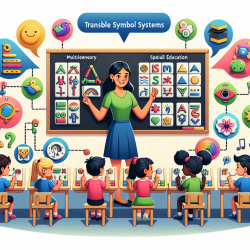In the realm of special education and therapy, the quest for innovative and effective strategies to enhance cognitive development in children is ongoing. A significant contribution to this field is the research presented in "Piagetin Activities - A Diagnostic and Developmental Approach," which offers a treasure trove of activities based on Piagetian principles. This blog aims to illuminate how practitioners can leverage the outcomes of this research to refine their therapeutic practices or delve deeper into their research endeavors.
Jean Piaget's theory of cognitive development has long been a cornerstone in understanding how children acquire knowledge and understand the world around them. The stages of cognitive development outlined by Piaget—sensorimotor, preoperational, concrete operational, and formal operational—provide a framework for assessing and facilitating children's intellectual growth. The activities derived from Piagetian principles, as detailed in the research, are designed to stimulate logical thinking across various cognitive domains such as logical classification, number, space orientation, measurement, and probability.
For practitioners working in special education and therapy, incorporating Piagetian activities into their repertoire offers several benefits:
- Targeted Cognitive Development: By understanding the specific cognitive stage of a child, therapists can select activities that are most likely to challenge and promote growth in that area. This targeted approach ensures that the child is not overwhelmed by tasks that are too advanced, nor under-stimulated by tasks that are too simple.
- Language and Metacognitive Skills: Many of the Piagetian activities incorporate elements that enhance language development and metacognitive skills. For children with language disorders, these activities provide a dual benefit of cognitive and linguistic growth.
- Diagnostic Insight: The qualitative descriptions of possible responses to the activities offer therapists a diagnostic tool to better understand a child's cognitive functioning. This insight can guide the development of more personalized therapeutic interventions.
- Engagement and Interaction: Piagetian activities often require manipulation of physical objects and problem-solving, which can be more engaging for children than traditional pen-and-paper tasks. This hands-on approach can lead to greater participation and investment in the therapeutic process.
Implementing Piagetian activities in therapy requires a thoughtful approach. Practitioners should consider the child's current cognitive stage, language abilities, and interests when selecting activities. Collaboration with teachers and parents is also crucial to ensure that the activities align with the child's overall educational goals and can be reinforced in different settings.
While the benefits of incorporating Piagetian principles into therapy are clear, it's important for practitioners to also engage in continuous learning and research. The field of cognitive development is dynamic, with new insights emerging regularly. Practitioners can enhance their skills by attending conferences, participating in webinars, and reading up-to-date publications. Networking with peers can also provide valuable opportunities to share experiences and strategies that have been effective in different contexts.
In conclusion, "Piagetin Activities - A Diagnostic and Developmental Approach" presents a valuable resource for practitioners seeking to enrich their therapeutic practices. By integrating Piagetian activities into therapy, practitioners can support the cognitive development of children in a structured yet flexible manner. The research behind these activities not only offers practical tools but also encourages further exploration into the rich field of cognitive development. For those interested in delving deeper into the principles and activities outlined in this research, Piagetin Activities - A Diagnostic and Developmental Approach provides a comprehensive guide.










